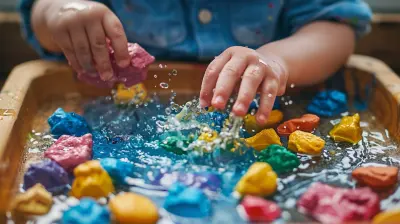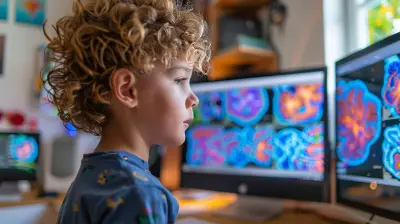Mediating Sibling Conflict Without Siding
23 July 2025
Sibling conflict—ugh. It’s the soundtrack playing in the background of every parent’s daily routine. One minute they’re building blanket forts together, the next someone’s screaming about a stolen toy or an unfair turn. Sound familiar?
If you're a parent, chances are you've been caught in the middle of a heated argument between your kids, trying to referee without losing your cool—or your mind. And here’s the kicker—it’s not just about ending the fight. It’s about how we handle it that teaches kids the crucial life skills of empathy, communication, and problem-solving.
But how do you mediate sibling conflict without taking sides? Let’s dive deeper than the classic "Just say sorry" approach and talk about how to really show up for your kids during those tension-filled sibling moments.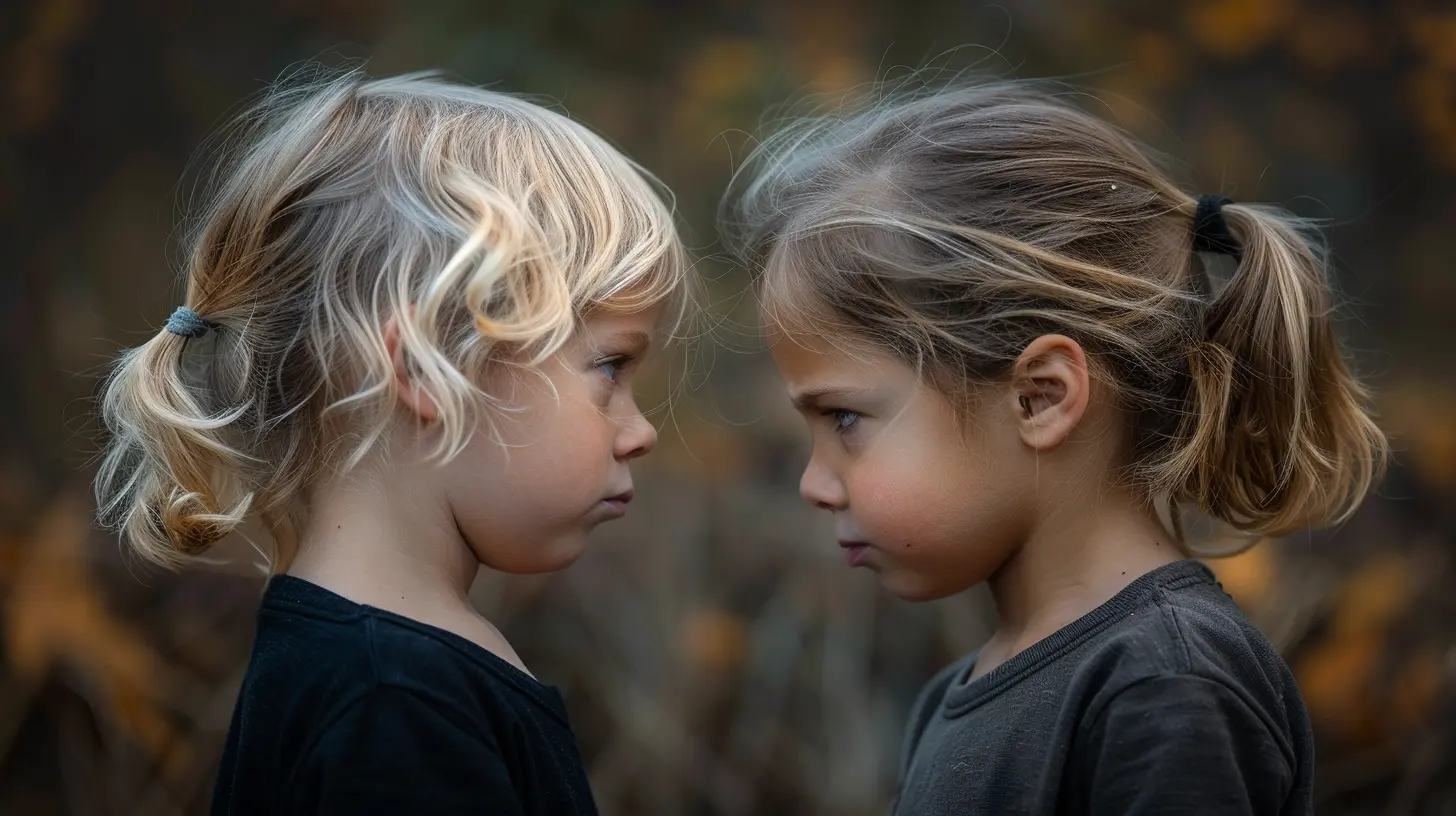
Why Sibling Conflict Is Actually a Good Thing (Yep, You Read That Right)
Before we dive into strategies, let’s reframe how we view conflict between siblings. It’s not all doom and gloom. In fact, sibling disagreements are a natural part of growing up. They’re like a testing ground where kids learn to navigate relationships, manage frustration, and express their needs—all under the safety net of family.Think of it like a mini dojo where emotional resilience and social skills are being sharpened. When handled well, these conflicts teach your kids more than any lecture ever could.
But here’s the deal—only if you, the parent, know how to guide them through it without getting pulled into the drama like it’s some kind of domestic courtroom.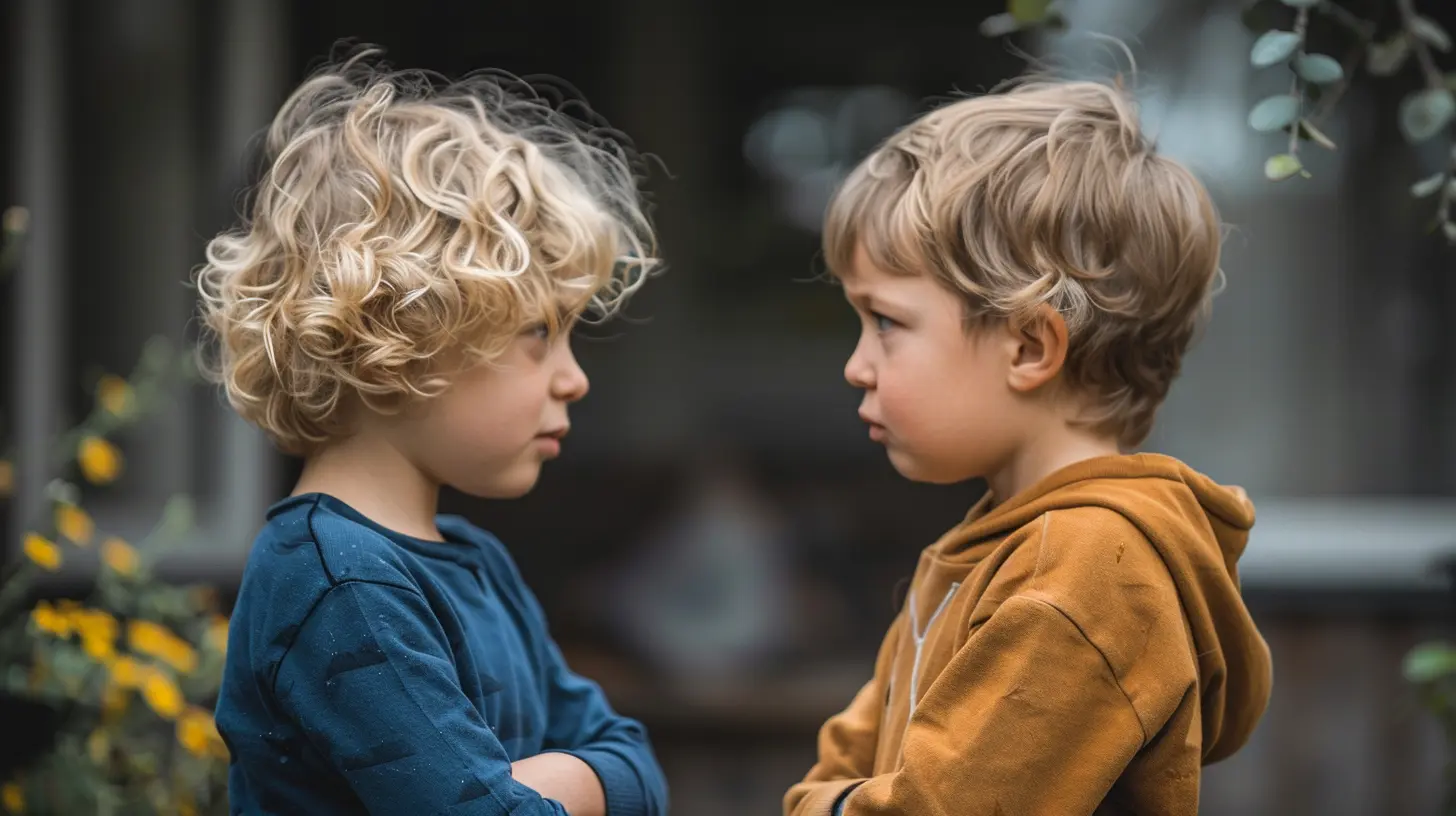
The Real Danger of Taking Sides
It’s so tempting, right? One kid shoves, the other cries, and your protective instincts kick in. Boom—you’re defending the crier and scolding the shover without a second thought. But here’s the problem: taking sides unintentionally creates labels. You may not mean to, but your kids start seeing themselves and each other as either the “good one” or the “troublemaker.”That messes with their self-esteem and sets up long-term resentment between siblings. Even worse? It teaches them to rely on authority figures to solve their problems instead of learning how to do it themselves.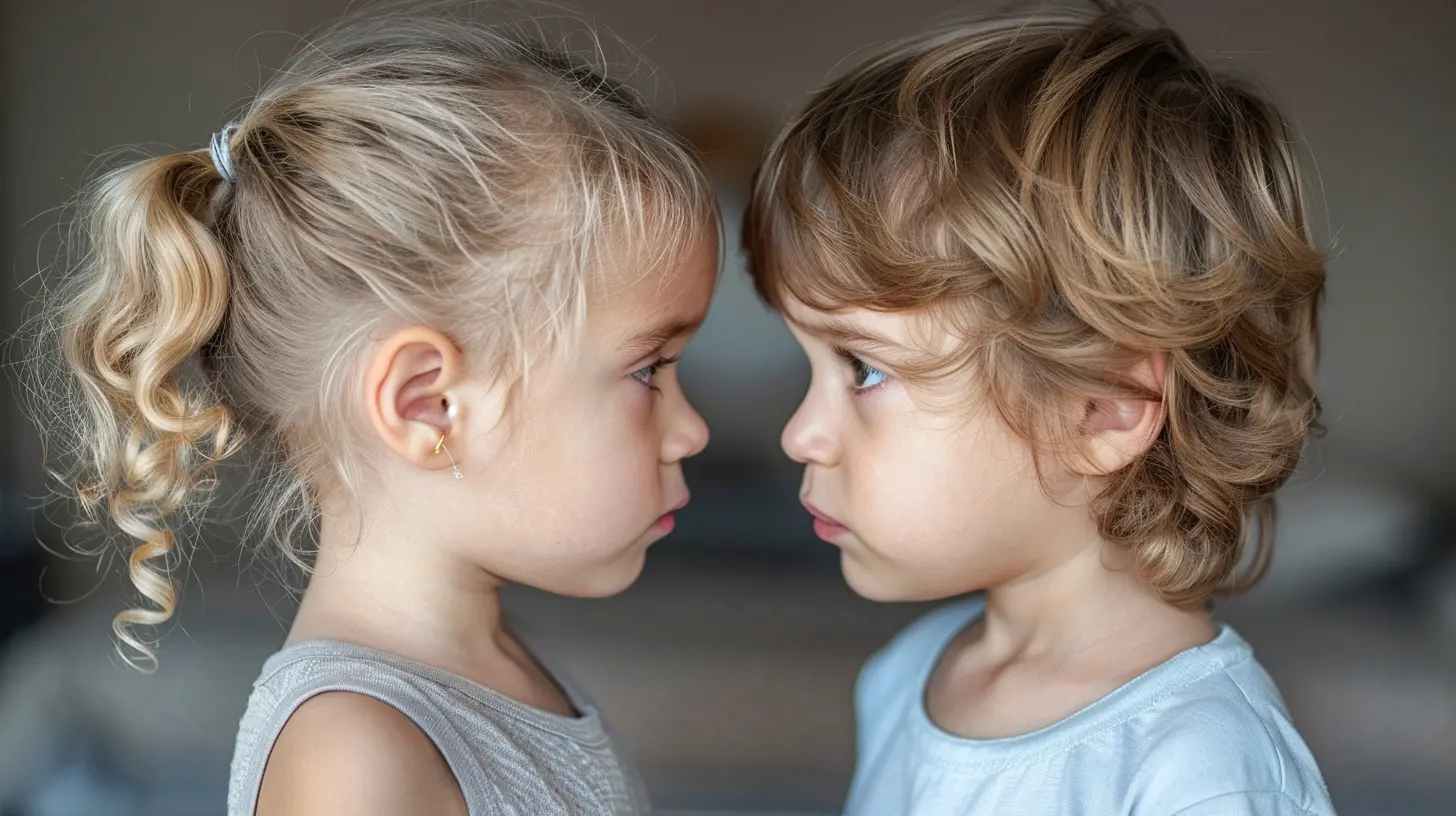
So, What Does “Not Taking Sides” Actually Look Like?
It’s more than just staying neutral. It’s about being emotionally available without turning into a judge. Think of yourself as a coach, not a referee. Your job isn’t to declare a winner—it’s to help both players improve their game.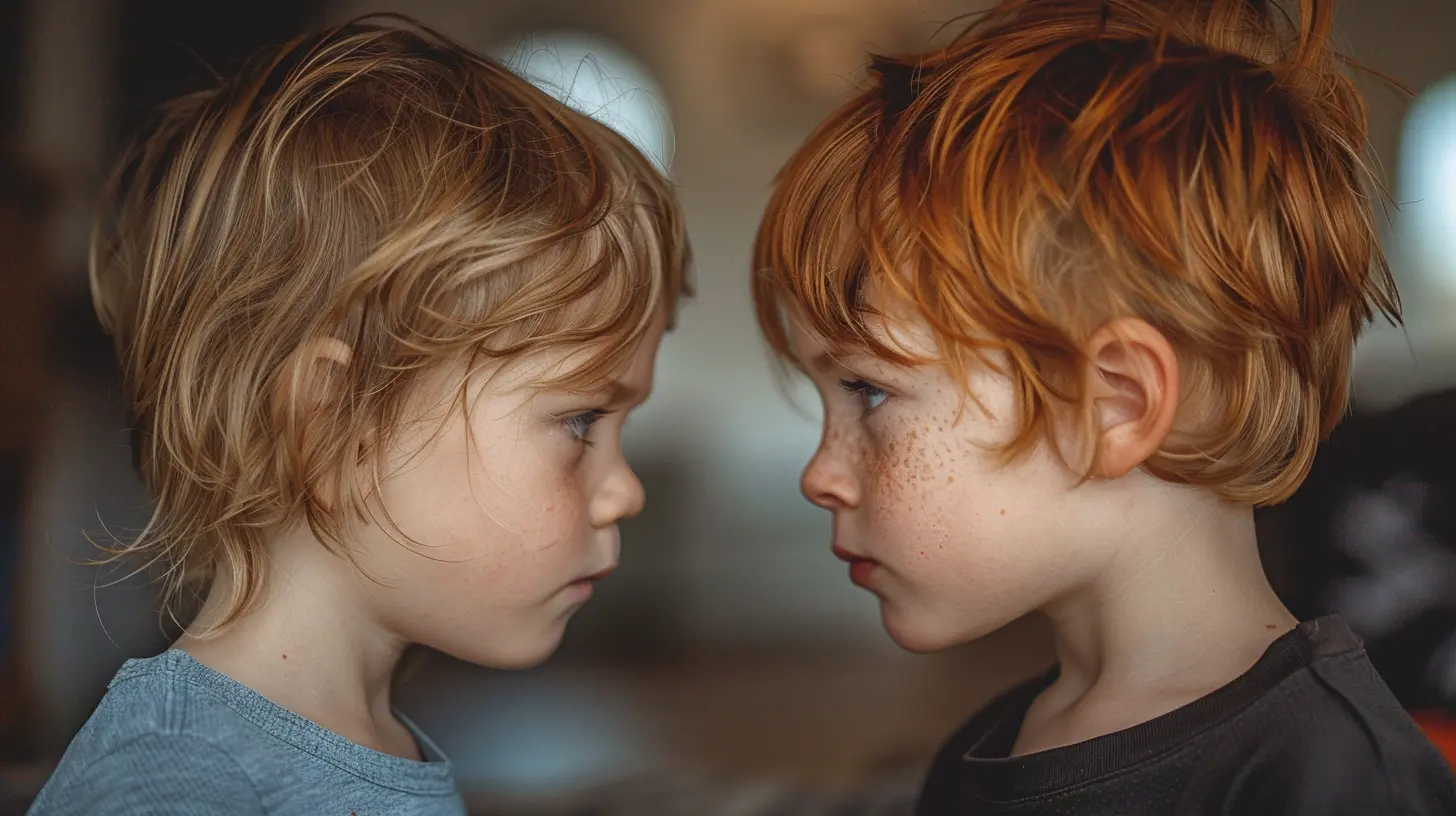
Step-by-Step: How to Mediate Without Siding
1. Pause Before You React
First things first—breathe. Seriously. Before you jump in and start throwing out punishments or solutions, take a second. The goal right now isn’t just to stop the noise—it’s to understand what’s really going on.Remember, you’re walking into an emotionally charged space. Your calmness sets the tone.
2. Acknowledge Everyone’s Feelings
This step is huge. Both kids need to feel seen and heard. Even if one clearly pushed or yelled, there’s always a deeper layer.Say things like:
- “Looks like you’re both really upset.”
- “I can see that this was important to both of you.”
Avoid stuff like:
- “Why would you do that to your sister?”
- “You always start the fights.”
Let them know emotions are valid, even if the behavior isn’t.
3. Get Curious, Not Critical
Once everyone’s calmed down a bit, it’s time to ask questions—open-ended ones.Try:
- “Can you tell me what happened from your point of view?”
- “What were you feeling when that happened?”
- “What did you want that you didn’t get?”
Listen to both sides without interrupting. Let them talk. You’ll be surprised how often kids just want to feel understood.
4. Reflect, Don’t Resolve (Yet)
This is where the magic happens. Paraphrase what each child says to show them you’re really listening.For example:
- “So you felt ignored when your brother changed the game without asking.”
- “You were excited to create something new but didn’t mean to hurt her feelings.”
When they hear their emotions mirrored back, it often brings down the emotional temperature. And guess what? Once they feel heard, they’re way more open to finding a solution.
5. Shift from Blame to Solutions
Now it’s time to coach them into the next step: problem-solving.Instead of:
- “Say sorry and don’t do it again.”
Try:
- “What can we do to make this fair for both of you?”
- “Is there a way to take turns or combine both your ideas?”
- “What would make you feel better right now?”
The key here is collaboration, not dictatorship. Let them come up with ideas. Guide them, but don’t take the wheel.
Pro Tips for Preventing Future Blow-Ups
Look, you can’t stop sibling conflict completely. But you can make it less intense and more productive. Here are some parent-approved hacks:1. Build Emotional Vocabulary
Teach your kids to name their feelings. Frustrated, disappointed, left out—words matter here. The more specific they can be, the better they can express themselves without resorting to yelling or hitting.2. Encourage Individual Time and Space
Everyone needs a break from each other sometimes. Schedule solo playtime and individual parent bonding moments. It helps your kids feel valued independently, not just as "the big sister" or "the little brother."3. Model Conflict Resolution
Yep, your kids are watching you like a hawk. If they see you calmly working through disagreements with your partner, friends, or even strangers, they’ll learn by example.So next time your partner loads the dishwasher "wrong," maybe hold off on the sarcastic comments and try, “I get why you did it that way, but can we try it this way next time?” (Easier said than done, I know.)
4. Avoid Comparison at All Costs
Nothing fuels sibling rivalry like “Why can’t you be more like your sister?” Treat each child as their own unique little human. Celebrate their differences instead of stacking them against each other.What If One Kid Is Always "The Problem"?
Here’s a hard truth: Some kids are just more intense than others. One might be more impulsive, louder, or more reactive. That doesn’t mean they’re bad. It just means they need more support in managing those big feelings.Try not to single them out. Instead, focus on coaching them through without labeling. Reinforce that everyone is learning and growing—even you.
When to Step In, And When to Back Off
Not every squabble needs your intervention. If there’s no physical harm and emotions are relatively in check, give them a chance to work it out. Hang back, but stay close in case things escalate.But: If it turns physical or one child’s emotional safety is at risk, that’s the time to step in firmly and assertively.
Say:
- “I see this is getting too big for you to handle alone. I’m here to help calm things down.”
Then go through the steps we talked about earlier.
The Long Game: Raising Emotionally Intelligent Humans
Mediating sibling conflict without siding isn’t just about surviving another tantrum-filled Tuesday. It’s about raising kids who:- Know how to stand up for themselves without putting others down
- Can listen to different perspectives
- Understand their own emotions
- Value relationships, even when they’re hard
That’s the kind of emotional intelligence that turns toddlers into teens who don’t slam doors, and teens into adults who know how to navigate the world with empathy and confidence.
Final Thoughts: Your Role Isn’t to Fix—It’s to Guide
The next time voices start rising over blocks or video games, remember this: You're not just breaking up a fight—you’re building lifelong skills. When you stay calm, stay curious, and don’t pick a side, you’re giving your kids the tools they’ll carry into every future friendship, relationship, or work meeting.So, let’s stop being the judge and start being the guide. Our kids don’t need us to pick winners—they need us to teach them how to grow through the tough moments together.
all images in this post were generated using AI tools
Category:
Sibling RivalryAuthor:

Karen Hurst
Discussion
rate this article
2 comments
Wesley Ross
Mediating sibling conflict requires a delicate balance of empathy and neutrality. Encourage children to express their feelings and perspectives, fostering understanding. Teach them conflict resolution skills, emphasizing cooperation over competition. This approach not only resolves immediate issues but also cultivates lifelong communication and problem-solving abilities.
November 10, 2025 at 5:56 AM

Karen Hurst
Thank you for your insightful comment! Encouraging empathy and cooperation is indeed crucial for resolving sibling conflicts and fostering strong communication skills.
Nyx Hensley
Great insights! Encouraging kids to express their feelings and collaboratively find solutions can foster important conflict-resolution skills. It’s also a valuable opportunity for them to learn empathy and communication. Thank you!
July 27, 2025 at 2:28 PM

Karen Hurst
Thank you for your thoughtful comment! I'm glad you found the insights valuable. Encouraging expression and collaboration truly lays the foundation for empathy and effective communication in kids.
